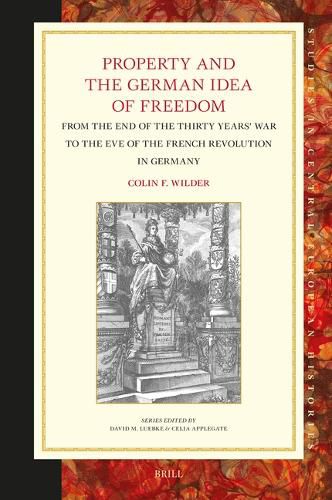Readings Newsletter
Become a Readings Member to make your shopping experience even easier.
Sign in or sign up for free!
You’re not far away from qualifying for FREE standard shipping within Australia
You’ve qualified for FREE standard shipping within Australia
The cart is loading…






This book offers a new interpretation of German law and politics during the era between the Thirty Years' War and the French Revolution. Liberal ideas of freedom and equality were prototyped in Germany in property law: through the free disposition of estates, freedom from taxation and other extractions, and free use of paper money. Civil liberty, ideas about equality, and restrictions on arbitrary state power were real, recognized, and meaningful. These freedoms were enjoyed by all classes of Germans. They were thought to have been built atop Germans' ancient heritage of freedom and a federalist imperial constitution which inspired Montesquieu and the American Founders. Driving these trends were ideas about political economy, enlightened reform, practical problem-solving, as well as forces of supply and demand in everything from the market for books to the market for justice. This book places the story of early modern German freedom close by the side of more familiar stories of England, North America, France, and the Netherlands.
$9.00 standard shipping within Australia
FREE standard shipping within Australia for orders over $100.00
Express & International shipping calculated at checkout
This book offers a new interpretation of German law and politics during the era between the Thirty Years' War and the French Revolution. Liberal ideas of freedom and equality were prototyped in Germany in property law: through the free disposition of estates, freedom from taxation and other extractions, and free use of paper money. Civil liberty, ideas about equality, and restrictions on arbitrary state power were real, recognized, and meaningful. These freedoms were enjoyed by all classes of Germans. They were thought to have been built atop Germans' ancient heritage of freedom and a federalist imperial constitution which inspired Montesquieu and the American Founders. Driving these trends were ideas about political economy, enlightened reform, practical problem-solving, as well as forces of supply and demand in everything from the market for books to the market for justice. This book places the story of early modern German freedom close by the side of more familiar stories of England, North America, France, and the Netherlands.